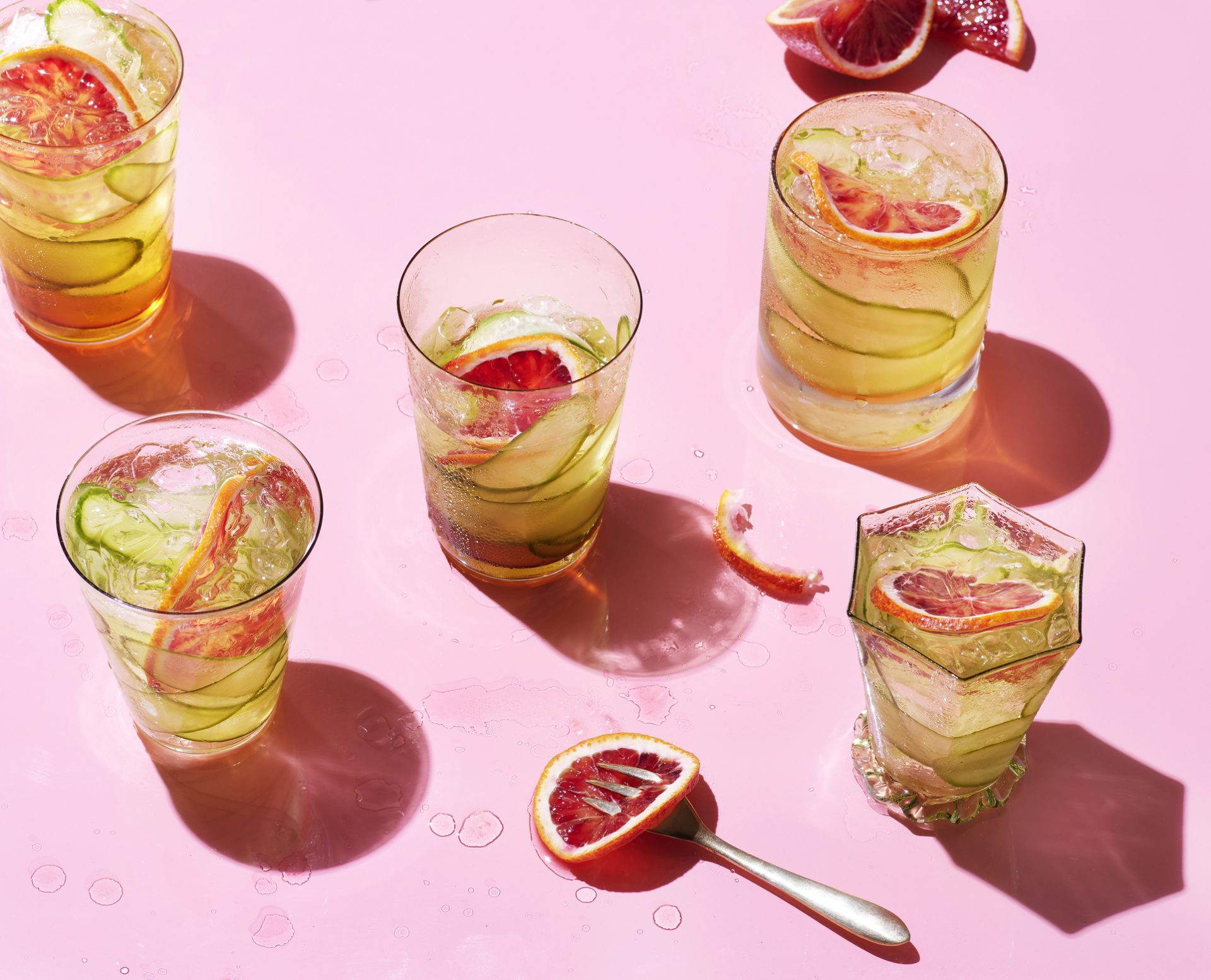Rather than going cold turkey and giving up booze for dry January, writer Helen Wilson-Beevers has been looking into a more sustainable approach to drinking.
After the excitement of Christmas and the new year, it’s fair to say that January can hit us like a bolt from the blue. The combination of cold, grey weather and the comedown from endless festive frolics makes for a challenging seasonal shift.
Whoever first thought that January was the perfect time to start dishing out resolutions must have been living in a different climate. We’re busy just trying to stay afloat, and yet we find ourselves sucked into the trap of promising to change our diets, sleep patterns and booze intake.
But what if this time, instead of doing something as dramatic as dry January, we focused on making small, sustainable changes that could potentially see us through the entire year?
You may also like
“This alternative approach to Dry January made me happier and healthier”
I’ve always hated the idea of dry January, primarily because the start of the year is the hardest time to give up something you enjoy. So instead of swearing my sobriety, I’ve decided to try to cut down on booze rather than quit altogether.
I drink about four glasses of wine throughout an average week. That might not sound a lot, but drinking alcohol does make me feel very tired the next morning and that can take a few days to recover from. It doesn’t take much for hangxiety to take hold either.
While I love sharing a bottle of red in the evening or unwinding with a couple of G&Ts with friends, I want to break those low-energy cycles and embrace the health benefits of being booze-free more often, and perhaps broaden my drink horizons to embrace exciting alcohol-free options when socialising.
With all those goals in mind, I’m planning on cutting back as much as possible without the pressure of committing to a totally dry January. To see if that low-expectation approach might work, I’ve been speaking with a bunch of experts for tips on how best to approach ‘try January’ if, like me, you’re sober-curious rather than committed to ditching the bottle.
Five expert-approved ways to approach ‘try January’
Take a weekly booze break
Nutritionist Gabriela Peacock, author of 2 Weeks To Feeling Great, tells Stylist:“It is always good to be kinder to your body and give it a bit of a break, especially after the Christmas period when our alcohol consumption is quite high.”
However, Peacock doesn’t believe in going completely cold turkey, and she suggests slowly weaning yourself off alcohol by going alcohol-free at the start of January for three or four consecutive days. “This will help you to manage your stress levels too, as the start of the year can be really stressful.
“A bit of a reset for a few weeks at the start of the year can be really effective and give your body a break.”

Look at why you drink alcohol
“We have to understand why, how and where we drink before we can learn how to stop or reduce our drinking habits,” says mindset coach Dr Maurice Duffy.
“It’s only when we have established a base camp of unlearning the things we need to bin, the behaviour we need to change and the chattering critical voices that we need to shut down, that we can really move forward,” Duffy explains.
“The secret to real change is that you must connect emotionally, not just cognitively,” he says, adding further weight to thinking about a long-term shift rather than a seemingly quick fix.
Stock up on supplements
As well as reducing your alcohol intake, Peacock points to the importance of self-care and eating well for a holistic ongoing approach. She recommends taking some supplements to support your liver function, such as choline, curcumin and L-methionine.
Alternatively, make yourself a turmeric (curcumin) latte with powdered turmeric, some cracked black pepper, a spoon of honey and hot milk. Meat and fish (especially tuna) are rich in L-methionine, while brazil nuts, soybeans and tofu are good plant-based sources. Dairy and meat eaters will have no problem eating plenty of choline from their diet, but vegans might struggle – which is where supplements can come in handy.
Stay hydrated while you drink
In addition to never drinking on an empty stomach, Peacock says: “I would also recommend a glass of water after every glass of wine, and where you can, dilute your alcoholic drinks with soda water or flavoured water – maybe add some lemon to give it a delicious taste.”
She does, however, recommend staying away from soft fizzy drinks, as they tend to be high in sugar. “Instead try some flavoured sparkling alternatives, such as sparkling water with lemon or cordial.
“If you drink a lot of water and liquids, you will drink less alcohol – so staying hydrated is key.Green or matcha tea, green juices, kombucha, turmeric or matcha lattes are all great for emergency rehydration.”
You may also like
“Getting sober helped me become the person I was always supposed to be”
Small and steady wins the race
“Goals are not achieved by an impulse move,” says Dr Duffy. Instead, it highlights why we should see moving in the right direction with our health and fitness aims as a gradual journey. “Small steps may appear unimpressive, but don’t be deceived. Success is sustainable small steps repeated day-in and day-out,” he underlines.
And that’s something Peacock echos: “Reducing our intake is sustainable and making small changes will be effective in the long-term.”
That feels a far better way of navigating dry January than quitting drinking altogether for a short time, only to potentially lose all the alcohol-free health benefits by February.
Images: Getty
Source: Read Full Article
